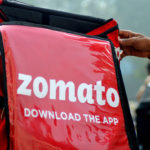A Digital Signature Certificate(DSC) for NRIs in Kuala Lumpur, Malaysia is an electric form of an individual signature. It is used to authenticate the identity and integrity of a digital document or message the individual shares. In the contemporary world, a lot of documentation is executed online, and sometimes people get scammed as they are not able to figure out the difference between the original and fake documents. In such cases, a Digital Signature Certificate(DSC) helps to establish the identity of the person sending the documents or transaction. It makes the whole documentation process more trustworthy and authentic.
Especially in the case of a foreign national or a Non-Resident Indian in Kuala Lumpur, Malaysia, a Digital Signature Certificate(DSC) is must required. Non-Resident Indians and foreign nationals do not reside in India; that’s why people and companies have trust issues. People think that they are getting scammed or the foreign national or Non-Resident Indian documentation is fake; in such cases, a Digital Signature Certificate(DSC) provides authenticity to the online transaction and documents sent by them. The digital signature serves a lot of purposes; it helps in income tax e-filing, making online transactions, etc.
What is Digital Signature Certificate(DSC) for NRIs or Foreign Nationals in Kuala Lumpur, Malaysia?
A Digital Signature Certificate(DSC) for NRIs or Foreign Nationals in Kuala Lumpur, Malaysia helps approve their identity and permits them to conduct any online exchanges securely. A class 3 digital signature helps foreign nationals make secured online exchanges if they reside in the country. An individual can utilize their digital signatures on various government portals. The digital signatures can be used for the personal use of the individual as well as the organization’s use.
NRIs in Malaysia
The Sultanate of Malacca is regarded to have started Malaysia’s history about 1400 AD. The Sultanate Territories previously stretched along the East Coasts of Peninsular Malaysia and Sumatra. Malacca rose to prominence as a splendid government as a result of its strategic location at a crossroads between East Asia and the Middle East.
Malacca was able to establish itself as a significant spice trading hub, particularly in Southeast Asia, as a result of this circumstance. Because the Ruler himself had embraced Islam, it was the dominant religion that evolved and became the main religion of the population.
Land area: 126,853 sq mi
Total area: 127,316 sq mi
Population:- 33,331,000(2022 Est.)
Currency Exchange Rate:- 1 USD equals 4.386 Malaysian ringgit
Head Of State:- Paramount Ruler
Official Language:- Malay
Official Religion:- Islam
Official Name:- Malaysia
Capital:- Kuala Lumpur
Malaysia is a country in Southeast Asia that is divided into two noncontiguous regions: Peninsular Malaysia (Semenanjung Malaysia), also known as West Malaysia (Malaysia Barat), and East Malaysia (Malaysia Timur), which is located on the island of Borneo. Kuala Lumpur, Malaysia’s capital, is located around 25 miles (40 kilometres) from the shore, whereas Putrajaya, the administrative capital, is about 16 miles (25 kilometres) south of the city.
Land
Peninsular Malaysia encompasses the majority of the Malay Peninsula’s southern region. To the north, it is surrounded by Thailand, with whom it has a 300-mile land border (480 km). To the south, at the peninsula’s tip, lies the island republic of Singapore, which Malaysia shares a causeway and a separate bridge with.
The Indonesian island of Sumatra is located to the southwest, across the Malacca Strait. East Malaysia is made up of the country’s two largest states, Sarawak and Sabah, and is separated from Peninsular Malaysia by the South China Sea, which runs for 400 miles (640 kilometres). These two republics occupy about the northern fourth of the enormous island of Borneo, sharing a land border to the south with the Indonesian section of the island (Kalimantan).
Economy of Malaysia
Malaysia’s economy has developed from reliance on raw material exports (rubber and tin) to one of Southeast Asia’s strongest, most diversified, and fastest-growing. Primary production is still important: the nation produces a lot of rubber and palm oil, exports a lot of petroleum and natural gas, and is one of the world’s biggest producers of commercial hardwoods. Malaysia, on the other hand, is increasingly emphasising export-oriented manufacturing to drive its economic growth.
Malaysia has drawn significant international investment, particularly from Japan and Taiwan, thanks to its comparative advantages of a relatively affordable yet educated labour population, well-developed infrastructure, political stability, and an undervalued currency.
Cultural life
Malaysia is a crossroads for various important cultural traditions from Southeast Asia’s archipelagos, as well as China, South Asia, the Middle East, and the West. The area is home to Malay culture, Peninsular Malaysia’s Orang Asli cultures, and several of East Malaysia’s cultures. Indigenous Malay culture in the Malay Peninsula and other regions of Southeast Asia was heavily influenced by pre-Islamic Indian and early Islamic influences in the first one and a half millennia CE. From the 2nd or 3rd century through the late 14th century, Indian interaction with the Malay Peninsula had a tremendous impact on religion (via Hinduism and Buddhism), art, and literature.
Between 2500 and 1500 B.C., the ancestors of the people who presently live on the Malaysian peninsula initially arrived. Those who lived along the coast had early interaction with Chinese and Indians; maritime traders from India brought Hinduism with them, which was mixed with indigenous animist beliefs. When Muslims conquered India, they brought Islam to Malaysia with them. When Parameswara Dewa Shah, the Hindu monarch of the great city-state of Malacca, converted to Islam in the 15th century, Islam gained a firm foothold in the region.
What is the need for a Digital Signature Certificate(DSC) for NRIs in Kuala Lumpur, Malaysia?
Being Non-Resident Indians, it is not possible for the NRIs to be physically present in India to authenticate their identity every time they make any online transaction. In cases where they need to authenticate their identity, the Non-Resident Indians can use Digital Signature Certificate(DSC)s. The individual can use their Digital Signature Certificate(DSC) for online transactions like Income Tax e-filing signing web forms, e-tendering documents, company or Limited Liability Partnership (LLP) incorporation, etc. The Digital Signature Certificate(DSC) provides the individual with a high level of security for their online transaction. It also ensures the absolute privacy of the information shared by using a Digital Signature Certificate(DSC).
Documents need to be submitted for the Digital Signature Certificate(DSC) of NRIs or Foreign Nationals in Kuala Lumpur, Malaysia
To get your Digital Signature Certificate(DSC), the NRI from Kuala Lumpur, Malaysia requires to submit the following documents in India: –
First of all, you need to submit a photocopy of your passport. The photocopy of your passport should contain the front and back, and it should be attested by the embassy or notarized by that country.
Secondly, the individual must attach a copy of the resident permit in case of foreign nationals in India.
They also need to attest to a photocopy of their visa. It is mandatory to submit a visa if you are an NRI or a foreign citizen.
The applicant is also required to submit the bank statement that should have seals and signatures.
Photocopy of the driving license. If the applicant is a Non-Resident Indian, they must submit an apostle.
Next, the individual is required to submit a scanned copy of identity proof issued by the local government.
The applicant is required to provide his contact details.
Lastly, the individual must submit email, mobile, and video verification.
Besides this, the officials may ask the applicant to show their original documents during video verification.
Documents required to submit for the Digital Signature Certificate(DSC) of Foreign organization from Kuala Lumpur, Malaysia in India
The documents required for a Digital Signature Certificate(DSC) in case of a foreign organization from Kuala Lumpur, Malaysia in India are as follows: –
Firstly, the individual needs to submit the scanned copy of the employee ID proof of applicant and authorized signatory.
Next, the applicant is required to submit a scanned copy of the address proof of organization and organization authorization letter.
The individual is required to submit a copy of registration/incorporation documents and details of the organization.
Lastly, the individual needs to submit the email, mobile, and video verification.
Remember that the officials may ask you to show your original documents during the video verification process.
Benefits of having a Digital Signature Certificate(DSC) as NRIs in Kuala Lumpur, Malaysia

There are many advantages of using a Digital Signature Certificate(DSC) for foreign nationals and organizations of Kuala Lumpur, Malaysia: –
The Digital Signature Certificate(DSC) help in making online transactions more secure and authentic. See, if you are a Non-Resident Indian, people may have trust issues as you do not reside in India. However, having a Digital Signature Certificate(DSC) makes your online transactions more secure, authentic, and trustworthy.
Secondly, the Digital Signature Certificate(DSC) helps in establishing ownership of a domain. Whether you are an individual or own an organization, you need a Digital Signature Certificate(DSC) in both cases. You can make your Digital Signature Certificate(DSC) in the organization’s name for making online transactions in your organization’s name.
Thirdly, foreign companies who desire to trade need to have a Digital Signature Certificate(DSC) as it authenticates your company business as well as your identity. Non-Resident Indians filing their income tax returns, accessing e-tenders, and signing web applications and web pages without relying on a username and password also need a Digital Signature Certificate(DSC).
Details that an NRI Digital Signature Certificate(DSC) consists of in India
There are various information that a NRI Digital Signature Certificate(DSC) consists of in India; they are as follows: –
Firstly, the Digital Signature Certificate(DSC) will include the name of the individual using it.
Secondly, it will include the user’s public key.
Thirdly, the Digital Signature Certificate(DSC) will include the expiry date of the user’s public key.
Next, it will include the name of the issuing certification authority issuing the certificate to the individual.
It will consist of a serial number assigned to the digital signature. Every Digital Signature Certificate(DSC) has its unique serial number, and the serial number helps in verifying the identity of an individual.
Lastly, it will consist of a digital signature of the issuer.
How to apply NRI Digital Signature Certificate(DSC) for NRIs in Kuala Lumpur, Malaysia?
The application process for a Digital Signature Certificate(DSC) for NRIs in Kuala Lumpur, Malaysia is a five-step process, explained below: –
Step one:-
In the first step, the individual must log into the digital signature certifying authority and select their entity type. The applicant needs to log into a certifying authority portal licensed to issue Digital Signature Certificate(DSC) in India. After that, navigate to the Digital Certificate section and then click on the type of entity for which you are applying the Digital Signature Certificate(DSC). If the individual is applying for an individual Digital Signature Certificate(DSC). In that case, he needs to click on ‘individual’, and if he is applying for an organization, he needs to click on an ‘organization.’ After this, a new digital signature registration form tab will appear on your screen. You need to download the Digital Signature Certificate(DSC) registration form.
Step two:-
In step two, the individual must fill in all the necessary details asked in the form. After downloading the form, you must fill out the Digital Signature Certificate(DSC) class, its validity, type of Digital Signature Certificate(DSC), the applicant’s name, and the applicant’s contact details. After this, you must fill in the residential address, Goods and Service Tax (GST) number, and identity details of proof documents. Along with this, the applicant must fill out a declaration and submit a document as identity proof, a copy of address proof, and payment details. After filling in all the above-given details, the individual should affix their recent photograph and put their signature under the declaration. Carefully check the complete form and take the printout of the form if there is no correction.
Step three:-
In step three, the individual must provide proof of identity and address. After printing out the form, the applicant must provide identity and address proof. Remember that an attesting officer should attest the address proof and identity proof. Here, also make sure that the sign and seal of the attesting officer are completely visible on the supporting proof documents. In case of overwriting or blurred documents, the officials are authorized to reject your application.
Step four:-
In step four, the individual is required to make payment for the Digital Signature Certificate(DSC). After attaching the identity and address proof, a demand draft or check needs to be obtained for the payment of the application for the Digital Signature Certificate(DSC). The demand draft or check should be obtained in the name of the local registration authority, where the individual will apply for verification. The individual can find the details of the local registration authority depending on their city of residence by searching for a certifying authority licensed to provide a Digital Signature Certificate(DSC) online.
Step Five:-
In step five, the individual is required to post the documents. All the documents should be posted in an envelope, and the envelope should have a fully-filled Digital Signature Certificate(DSC) registration form. Along with the form, the applicant should also attach the supporting documents attested by the attesting officer. Lastly, the envelope should contain a demand draft or a check for the payment.
At last, address the enclosed envelope to the local registration authority. After enclosing the envelope, the applicant should post it to the designated address of the local registration authority. Once the officials verify your details, they will send your Digital Signature Certificate(DSC) to the address.
Different types of Digital Signature Certificate(DSC)s for NRIs in Kuala Lumpur, Malaysia
The Digital Signature Certificate(DSC) for NRIs in Kuala Lumpur, Malaysia can be categorized into three types they are as follows: –
Class 1: The class one Digital Signature Certificate(DSC) serves the purpose of securing email communication.
Class 2: The class two Digital Signature Certificate(DSC) is issued for the company or Limited Liability Partnership (LLP) Incorporation and is used for income tax return e-filling, obtaining Director Identification Number (DIN), or Designated Partner Identification Number (DPIN), etc.
Class 3: The class three Digital Signature Certificate(DSC) is required for e-tendering and participating in -e-auctions. In general, most business compliance requires the class 3 Digital Signature Certificate(DSC). The main purpose of a Digital Signature Certificate(DSC) is to authenticate communication and transactions.
Validity of Digital Signature Certificate(DSC) for NRIs in Kuala Lumpur, Malaysia
Generally, the Digital Signature Certificate(DSC) for NRIs in Kuala Lumpur, Malaysia is valid for one to two years, and one can easily renew the Digital Signature Certificate(DSC) after the previous one expires. The Digital Signature Certificate(DSC) is sent to the Indian address of the applicant. If the individual is residing abroad and wants to get his Digital Signature Certificate(DSC) there, then the officials will impose extra charges.
Foreign Organization Paperless Digital Signature Certificate(DSC) for NRIs in Kuala Lumpur, Malaysia

The class three Digital Signature Certificate(DSC) for foreign organizations in India is issued to the individual or authorized person residing in India and working on behalf of the concerned organization. In simple words, a foreign organization’s Digital Signature Certificate(DSC)s are issued in the name of the person managing the organization. To get the foreign organization Digital Signature Certificate(DSC), the individual must submit the employee ID proof and authorized signature with the organization authorization letter and organization details of the company and the applicant. Besides this, the citizen of other countries and their organization can also apply for a Digital Signature Certificate(DSC) for safe transactions. The Indian nationals who reside overseas mandatorily need to have a Digital Signature Certificate(DSC) to make safe transactions in the country.
Final Words for Digital Signature Certificate(DSC) for NRIs and Foreign Nationals in Kuala Lumpur, Malaysia
Digital Signature Certificate(DSC)s for NRIs in Kuala Lumpur, Malaysia are significant as they authenticate your online messages and transactions and ensure safe and secure transactions. Moreover, one should remember that while conducting transactions in India or applying for services, they must know the difference between the residential statuses, like Person of Indian Origin (PIO), Overseas Citizen of India (OIC) card holders, Non-Resident Indians, foreigners, etc. One should always choose a Digital Signature Certificate(DSC) according to their need. The Digital Signature Certificate(DSC) has three classes; generally, people require a class 3 Digital Signature Certificate(DSC) for most transactions.
A Digital Signature Certificate(DSC) for NRIs in Kuala Lumpur, Malaysia is a must-have in today’s contemporary world because people have trust issues. The Digital Signature Certificate(DSC) ensures secure transactions and validates and authenticates your documents. In simple words, it makes your documents valid and increases their value. If you are a Non-Resident Indian and want to get your Digital Signature Certificate(DSC) in your resident country. Then you are required to pay extra charges for the same, and the officials will send your Digital Signature Certificate(DSC) to the country of your current residence.








































